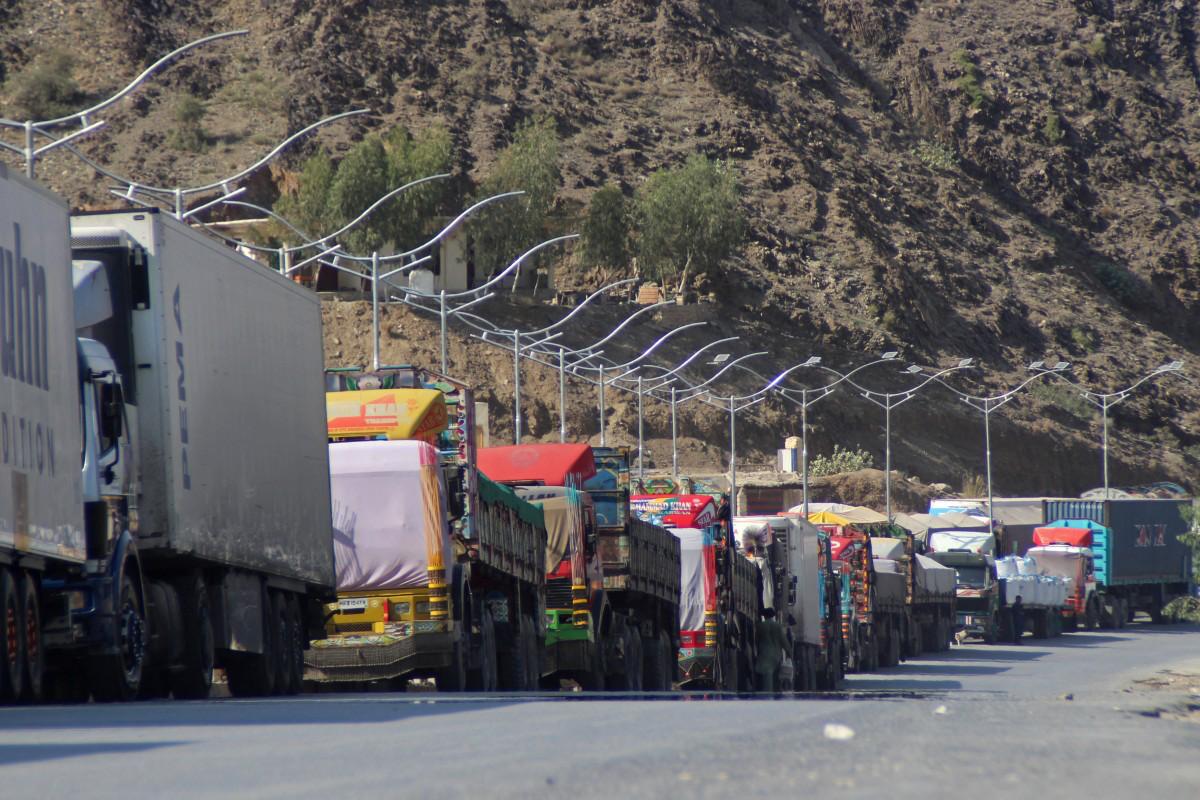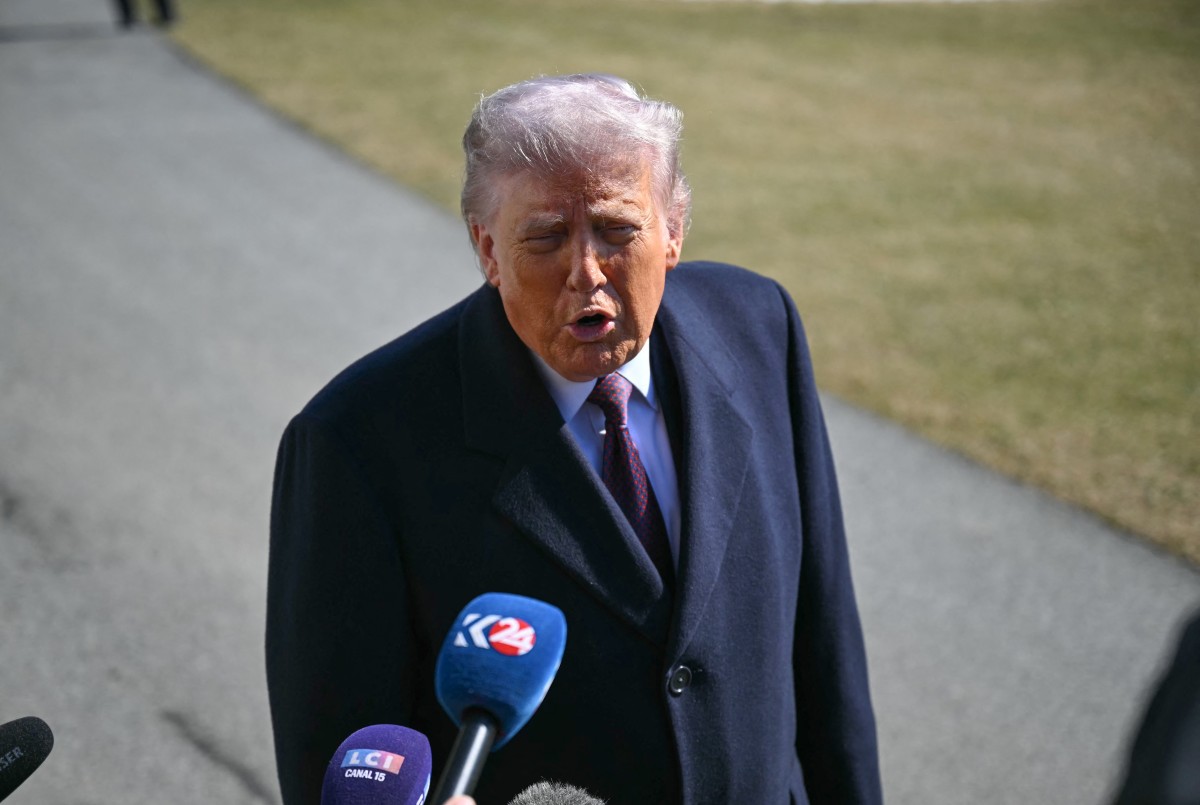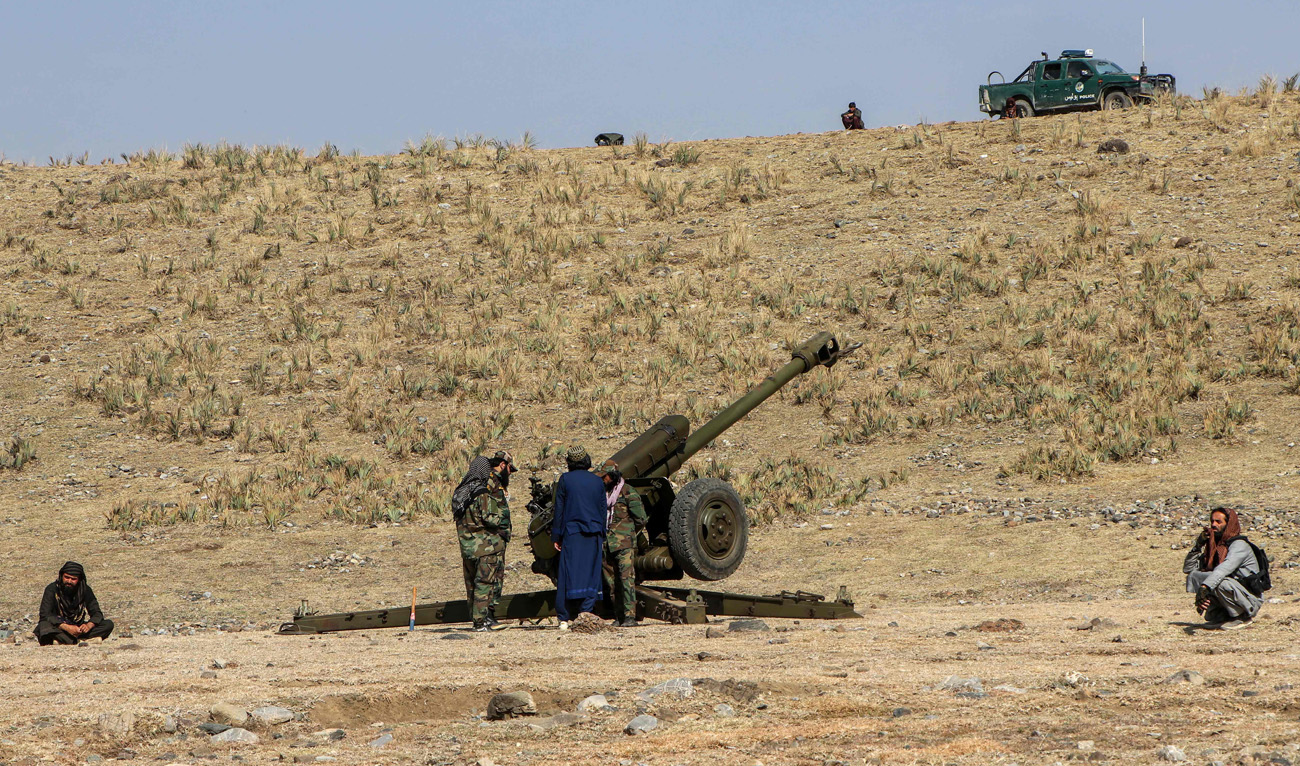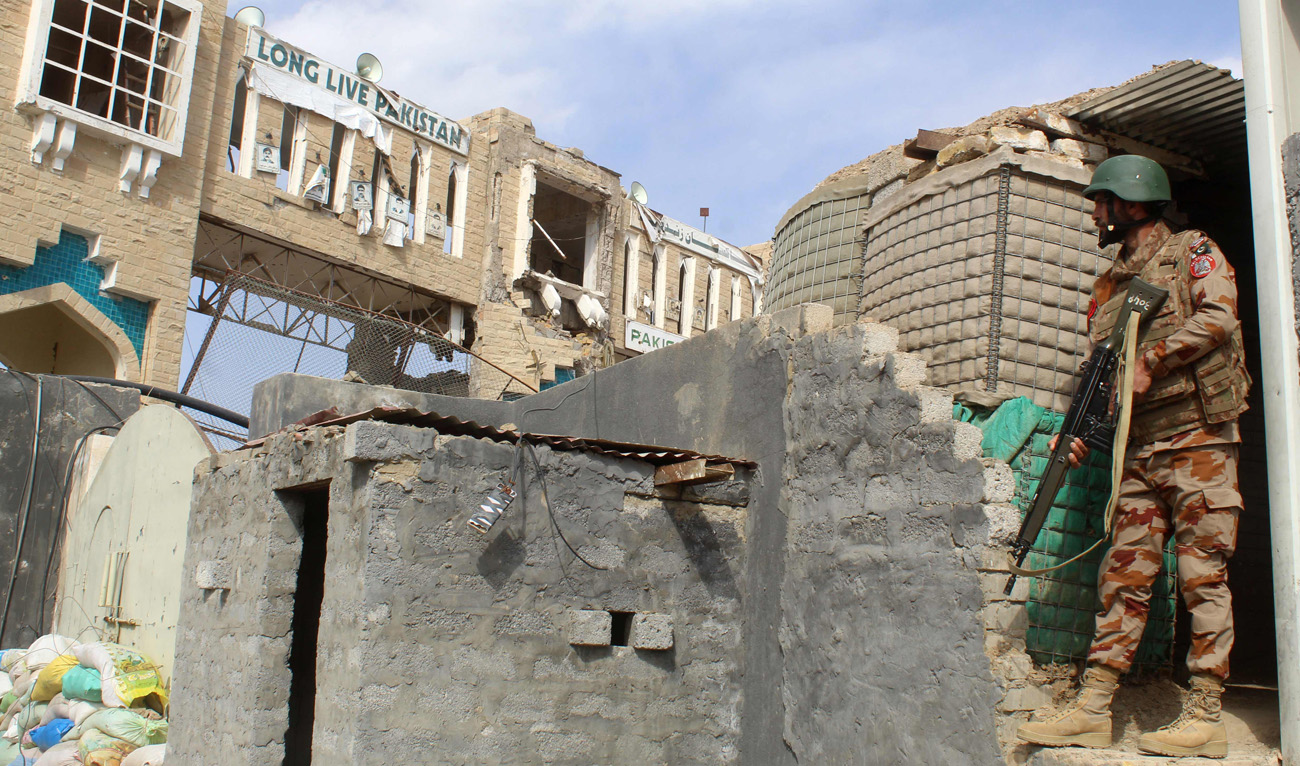Pakistan, Afghanistan border closure costs surpass $100M as talks remain stalled

Goods carrier trucks stalled near the closed Torkham border crossing between Afghanistan and Pakistan in Nangarhar province on October 21, 2025. (AFP)
Nearly a month of political and security issues has halted trade between Pakistan and Afghanistan, stopping bilateral commerce and causing over $100 million in losses for traders in both countries.
As of Nov. 10, major border crossings, including Torkham and Chaman, remain closed to commercial traffic. The recent collapse of talks in Istanbul has dashed hopes for a quick resolution, potentially shifting regional trade.
The crisis, which began in early October following deadly border clashes, has escalated into an economic standoff. The recent third round of negotiations in Istanbul, mediated by Turkey and Qatar, also ended without any agreement. Islamabad maintains that Kabul must first address its concerns regarding militant groups like the Tehreek-i-Taliban Pakistan and rein in terrorist elements operating against Pakistan on Afghan soil.
With diplomacy on pause, the economic fallout is on full display. The Afghanistan-Pakistan Joint Chamber of Commerce and Investment has confirmed that combined losses have exceeded $100 million. For reference, annual trade between the two countries is estimated at $2.3 billion.
Junaid Altaf, President of the Sarhad Chamber of Commerce, speaking to Pakistan TV Digital, said, “Containers are still stranded at the Torkham border. Many perishable items had to be returned, resulting in significant financial losses. Nearby warehouses are filled to capacity; there is no space left.”
“Containers are also stuck on the Afghan side, unable to enter Pakistan. These containers are loaded with stone, coal, and fresh fruit. Traders estimate that these blockades are impacting more than just trade; they are affecting employment, supply chains, and people-to-people relations between the two countries,” he added.
For Pakistan, the closure has affected certain imports, leading to temporary domestic price increases. Prices for essentials like tomatoes had soared to many times the usual rate, but the recent harvest in Pakistan's Sindh has brought prices back down.
Coal, another major import from Afghanistan, is in short supply. Pakistan has substantial coal reserves in the Thar region, but the quality does not meet the required standards, and it needs to import higher-quality coal from South Africa and other countries.
In Afghanistan, on the other hand, the impact is quite severe. The crucial dried fruit market, a mainstay of its export economy, has come to a near standstill, with traders in provinces like Zabul and Kandahar reporting devastating price drops as their goods cannot reach Pakistani markets.
The suspension of Afghan imports of grapes, apples, and pomegranates has raised prices in Pakistan. In Afghanistan, however, orchard owners are lamenting that prices need to be slashed by almost 50% compared to last year, as the fruit is piling up with no buyers in sight.
Pakistan is also the largest exporter of cement to Afghanistan. The construction industry is one of the country's biggest employers, especially in a nation ravaged by decades of war. However, the border closure has brought construction to a halt and impacted the lives of millions of laborers. Afghanistan can turn to Iran for cement, as it is already the second-largest importer, but this transition will require time, resources, and infrastructure.
According to the Afghanistan Food and Drug Authority, 95% of the pharmaceuticals in Afghanistan are imported, with the majority being from Pakistan and India (imported via Pakistan). The border closure has put a significant strain on Afghanistan's fledgling healthcare sector.
Khanjan Alokozay, Chairman of the Afghanistan-Pakistan Joint Chamber—Kabul Chapter, commenting on the ties between the two countries, said, “Unless trade and social matters are separated from intelligence and security issues and addressed seriously, resolving this problem is impossible.”
Faced with a blocked eastern border, Afghanistan is actively seeking alternatives, but the necessary infrastructure isn't available, and the costs are significantly higher. The lack of easy access to a port makes Kabul's task even more difficult.
Pakistan remains firm, linking trade to its security needs. The approach is part of a nationwide effort to repatriate undocumented foreigners, mostly Afghans. The belief is that the long-term security gains outweigh the short-term economic difficulties.
For a landlocked and unrecognized government, the Taliban must now treat border diplomacy as an absolute necessity, not a political afterthought.
Although Pakistan benefits from trade with its western neighbor, its overall reliance on it is limited. However, for Kabul, it could serve as a critical choke point with long-term economic consequences.
Latest News
Paramount acquires Warner Bros. in $110B mega-merger
2 HOURS AGO

Iran agreed not to stockpile enriched uranium: mediator Oman
2 HOURS AGO

US backs Pakistan’s self-defense as Trump praises leadership amid Afghan conflict
4 HOURS AGO

TTP–Taliban nexus exposed as attacks and retaliation mirror each other
4 HOURS AGO

Pakistan says 297 Taliban fighters killed in Afghanistan strikes
5 HOURS AGO

